2025 TECH7 Summit: Building Trust and Accelerating AI Adoption

On October 28, over 200 government and industry leaders from G7 nations and global tech associations convened in Ottawa for the 2025 TECH7 Summit, hosted by TECHNATION.
Throughout the day, participants explored how collaboration, innovation, and shared governance can shape a trusted digital economy, advancing responsible AI, cybersecurity, and data governance across borders. In every discussion, the spirit of resilience, inclusion, ambition, and collaboration reinforced a shared truth: trust is the foundation of innovation and enduring progress.
As the 2025 host, TECHNATION was honoured to welcome TECH7 partners from:
- France: AFNUM and Numeum
- Italy: Anitec-Assinform
- Japan: JEITA
- United States: Information Technology Industry Council (ITI)
- United Kingdom: techUK
- European Union: DIGITALEUROPE
Welcome and Opening Remarks
The 2025 TECH7 Summit opened with remarks from Kevin d’Entremont, TECHNATION President & CEO, who reaffirmed TECHNATION’s role in uniting global tech associations through the TECH7 coalition. He emphasized the importance of collective action on responsible AI, cybersecurity, and digital governance.
Delivering the opening address, Cindy Termorshuizen, Deputy Minister for the G7 Summit and Personal Representative of the Prime Minister, underscored Canada’s commitment to inclusive innovation. She spotlighted the G7’s recent milestones: the Leaders’ Statement on AI for Prosperity and the Kananaskis Common Vision for Quantum Technologies, as key steps toward a secure, collaborative, and human-centred digital future.
Ministerial Remarks
 The Honourable Evan Solomon, Canada’s first Minister of Artificial Intelligence and Digital Innovation, delivered an inspiring address on Canada’s leadership in responsible AI and digital innovation.
The Honourable Evan Solomon, Canada’s first Minister of Artificial Intelligence and Digital Innovation, delivered an inspiring address on Canada’s leadership in responsible AI and digital innovation.
Framing this era as a “Gutenberg moment” in history, he highlighted how technology is “rewriting the operating system of the global economy,” a transformation that requires trust, collaboration and shared values.
Minister Solomon outlined three pillars guiding Canada’s forthcoming National AI Strategy: Build, Protect and Empower, emphasizing secure digital infrastructure, privacy, and equitable AI adoption. He reaffirmed that Canada’s digital sovereignty is rooted in partnership, noting that “leadership in AI is not a birthright, it’s something we have to fight for every day.”
____________________________________________________________________________
Morning Fireside Chats
Unlocking Potential and Mitigating Risks: Responsible Global AI Adoption and Canada’s Role
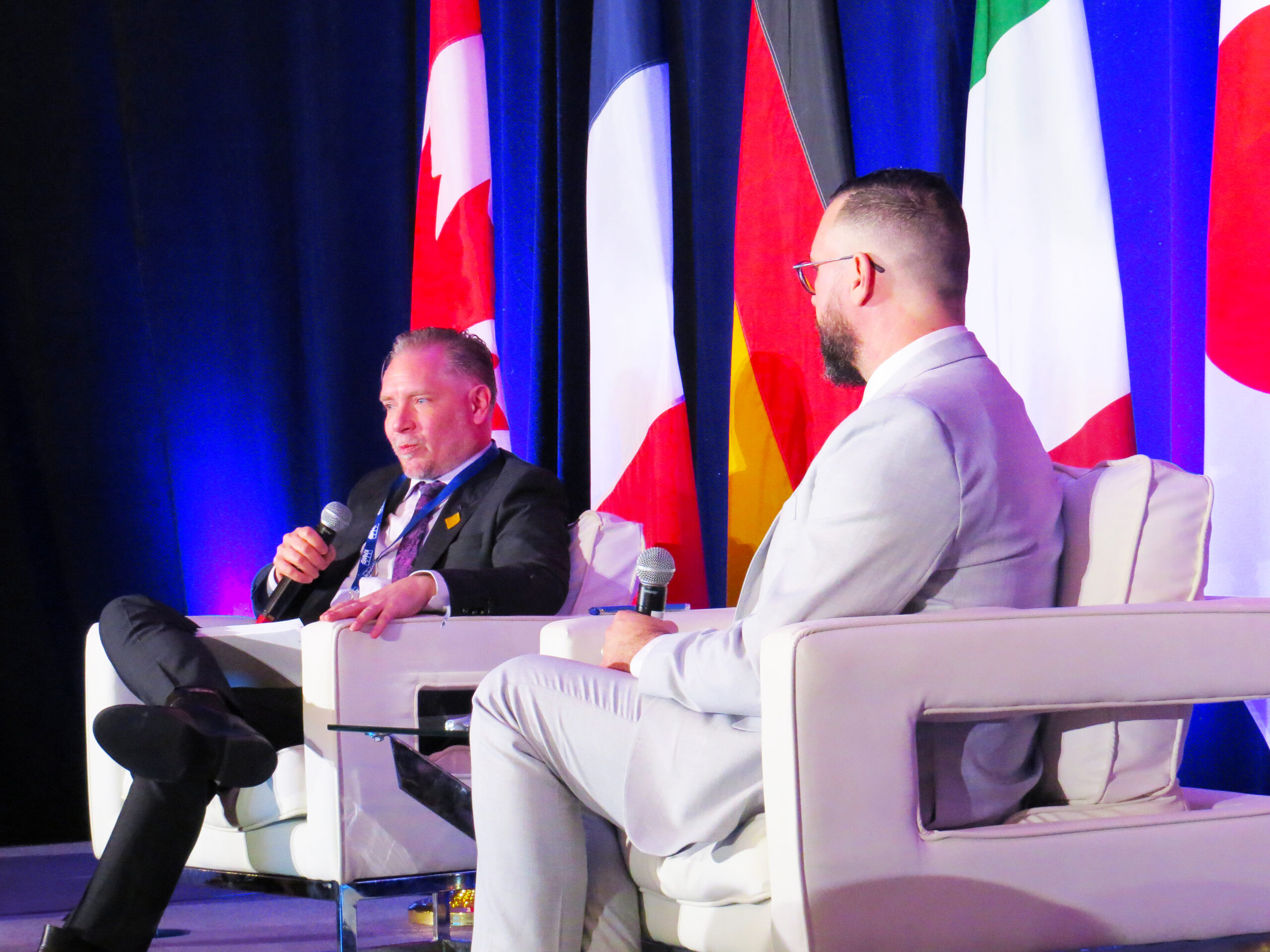 Responsible global AI adoption was the focus of the day’s first fireside chat featuring Mark Schaan, Associate Deputy Minister for Artificial Intelligence & Digital Innovation at ISED, and Todd Lane, Manager of Government Relations at Lenovo Canada. The discussion explored how Canada can accelerate innovation while maintaining trust, collaboration, and shared accountability in the AI ecosystem.
Responsible global AI adoption was the focus of the day’s first fireside chat featuring Mark Schaan, Associate Deputy Minister for Artificial Intelligence & Digital Innovation at ISED, and Todd Lane, Manager of Government Relations at Lenovo Canada. The discussion explored how Canada can accelerate innovation while maintaining trust, collaboration, and shared accountability in the AI ecosystem.
“The advancement of this technology is going come through diffusion, and rapid and widespread diffusion is going be predicated on people’s willingness to both engage and adopt the technology,” said Schaan, emphasizing that public trust remains essential to realizing AI’s full potential.
Key takeaways:
- Canada’s AI leadership is well established, but public trust and digital confidence remain critical to realizing its full potential.
- Strong data governance, transparent frameworks, and accessible infrastructure are essential for inclusive and responsible AI adoption.
- Voluntary AI codes and ongoing collaboration across industry and government are helping strengthen global trust and accountability.
____________________________________________________________________________
Accelerating Canada’s Innovation Economy: Shaping the Next Generation of Tech Prosperity
Canada’s innovation ecosystem took centre stage in the day’s second fireside chat featuring MP Karim Bardeesy, Parliamentary Secretary to the Minister of Industry, and Michael Acedo, Executive Vice President, Chief Legal Officer & Corporate Secretary, OpenText. The conversation focused on how Canada can better convert research excellence into commercialization and help Canadian firms scale at home before they’re forced to look abroad.
“We have world-class research, but we still need to do a better job turning it into Canadian companies, Canadian jobs, and Canadian customers,” noted Bardeesy, pointing to policy tools, procurement, and patient capital as levers to close the discovery-to-market gap.
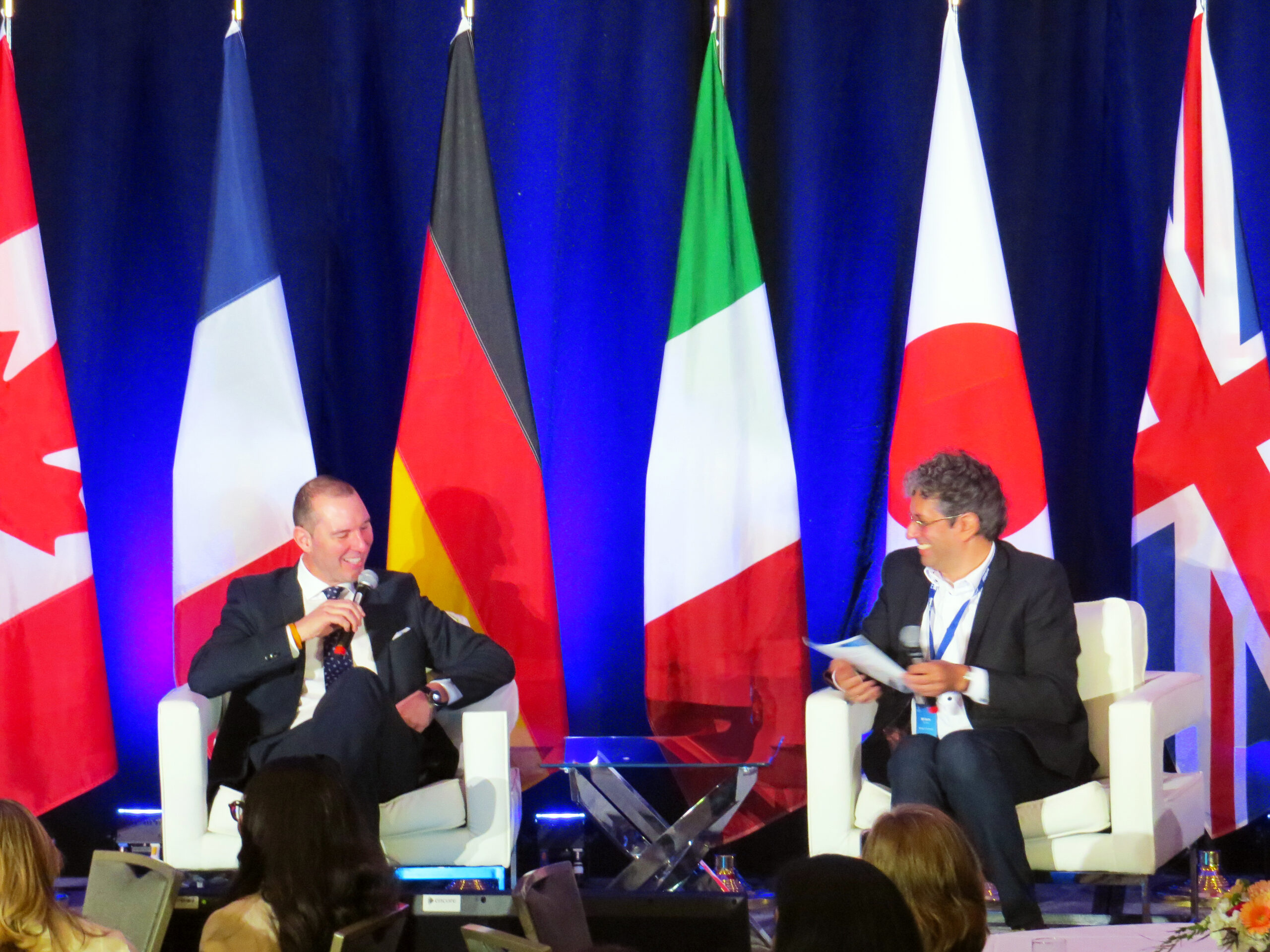
Key takeaways:
- Bridging the gap between discovery and market adoption requires stronger collaboration across government, academia and industry.
- Patient capital and responsible procurement can help Canadian startups scale and remain globally competitive.
- Long-term policy support and investment in talent are vital to sustaining innovation-driven growth.
____________________________________________________________________________
Tech, Trust and Transformation: Modernizing Government Services with Secure Digital Solutions
 The day’s third fireside chat brought together Dominic Rochon, Deputy Minister, Treasury Board Secretariat & Chief Information Officer of Canada, and John Cousens, Managing Director, Public Sector, Google Cloud Canada, to look at how the federal government can modernize services while protecting privacy, strengthening cybersecurity, and maintaining public trust in a fast-moving digital era. The discussion also underlined the need for federal, provincial, and international alignment to avoid fragmented approaches to digital identity and data.
The day’s third fireside chat brought together Dominic Rochon, Deputy Minister, Treasury Board Secretariat & Chief Information Officer of Canada, and John Cousens, Managing Director, Public Sector, Google Cloud Canada, to look at how the federal government can modernize services while protecting privacy, strengthening cybersecurity, and maintaining public trust in a fast-moving digital era. The discussion also underlined the need for federal, provincial, and international alignment to avoid fragmented approaches to digital identity and data.
“We have a thousand flowers blooming across the federal enterprise. Our job now is to know which ones are blooming, measure what’s actually working, and scale it responsibly,” noted Rochon, underscoring the importance of a centralized Government AI Hub to steer adoption.
Key takeaways:
- From pilots to impact: A “thousand flowers” of federal AI use cases are emerging across departments; the planned Government AI Hub aims to inventory, prioritize, and scale what works with clear productivity measures and human-in-the-loop practices.
- Trust first: Privacy, cybersecurity and digital identity/interoperable data are foundational. Canada is strengthening defenses (Shared Services Canada + Cyber Centre) and preparing updated digital sovereignty guidance to balance openness with protection.
- Adoption and culture: Boosting AI literacy for all federal workers, including executives, setting adoption targets, and sharing practical use cases, alongside provincial and international collaboration, are critical to delivering faster, citizen-centred digital services.
___________________________________________________________________________
Midday Panel Discussion
Scaling Inclusive Innovation: From Policy to Practice
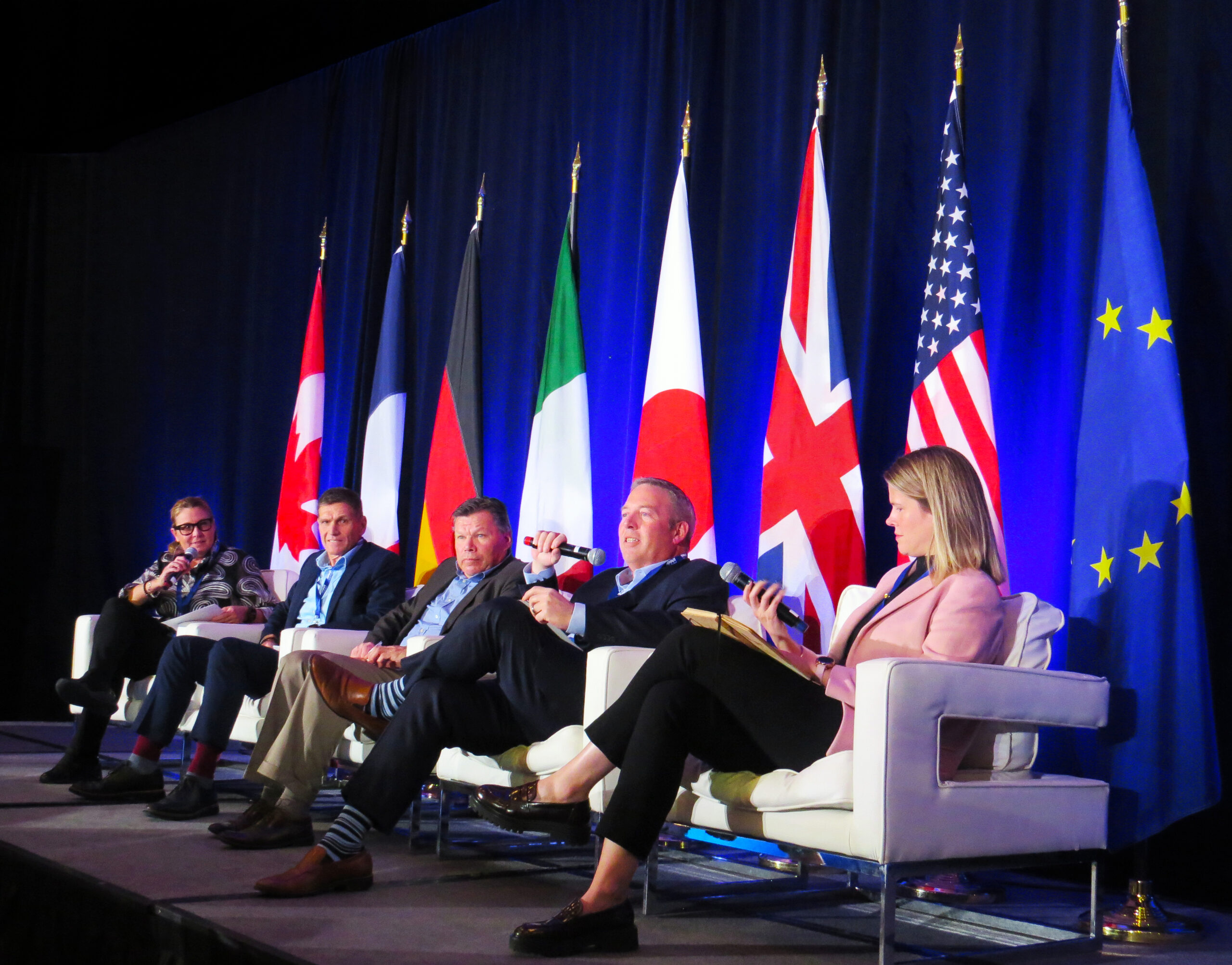 The discussion, moderated by Sylvie Ouellette (President & Co-Founder, Versatil), brought together Marc Brouillard (Senior Assistant Deputy Minister, Digital Services, and Chief Information Officer, Public Services and Procurement Canada), Terry Faubert (Manager of Strategic Policy, Transformative Indigenous Procurement Strategy Directorate, Indigenous Services Canada), Alain Cormier (Chief Executive Officer, NOVIPRO), and Sabina Ciofu (International Policy & Strategy Lead, techUK) to explore how Canada can turn digital policy into inclusive, measurable impact.
The discussion, moderated by Sylvie Ouellette (President & Co-Founder, Versatil), brought together Marc Brouillard (Senior Assistant Deputy Minister, Digital Services, and Chief Information Officer, Public Services and Procurement Canada), Terry Faubert (Manager of Strategic Policy, Transformative Indigenous Procurement Strategy Directorate, Indigenous Services Canada), Alain Cormier (Chief Executive Officer, NOVIPRO), and Sabina Ciofu (International Policy & Strategy Lead, techUK) to explore how Canada can turn digital policy into inclusive, measurable impact.
“Trust is built over time, through small, transparent actions,” said Brouillard, emphasizing that openness, fairness, and consistent delivery are the foundation of public confidence in digital transformation.
Key takeaways:
- Trust through transparency: Government must “ship and iterate”, building public confidence through openness, fairness and continuous delivery.
- Inclusive procurement: Canada’s 5% Indigenous procurement target is exceeding goals, creating billions in new opportunities.
- Collaboration as the catalyst: SMEs should be treated as partners in co-innovation environments that reduce costs and accelerate adoption.
- Global alignment: Stronger regulator-to-regulator collaboration can ease trade barriers and enable scalable digital growth.
____________________________________________________________________________
Cyber Resilience by Design: Securing Digital Infrastructure and International Cooperation
The discussion, moderated by J. Paul Haynes (President & Chief Operating Officer, eSentire), brought together MP Jenna Sudds (Parliamentary Secretary to the Minister of Government Transformation, Public Works and Procurement, and Parliamentary Secretary to the Secretary of State [Defence Procurement]), Sami Khoury (Government of Canada Senior Official for Cybersecurity), Richard Bilodeau (Senior Assistant Deputy Minister, Public Safety Canada), and Anissa Kémiche (Director, European & International Public Affairs, Numeum) to explore how governments and industry can strengthen cybersecurity frameworks through trust, collaboration and accountability.
“Trust takes a long time to earn, and you can lose it in a heartbeat,” noted moderator J. Paul Haynes, underscoring that cyber resilience isn’t just technical hardening but a leadership responsibility that must be designed into every system from the start. In his remarks, Haynes also referenced Alexander Feick’s e-book, On Trust and AI, a useful resource for anyone looking to understand AI risks and opportunities, and guide organizational AI adoption.
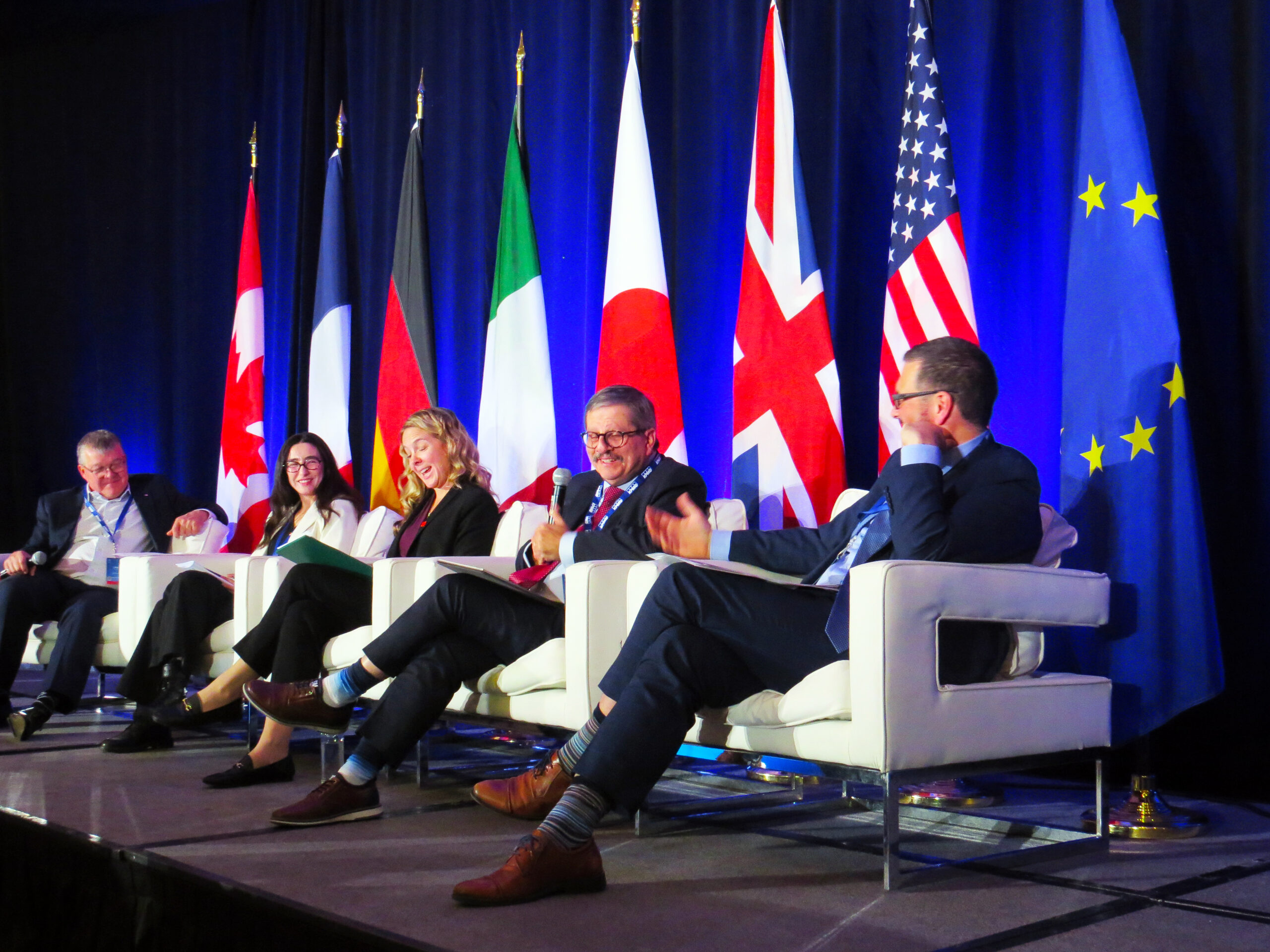
Key takeaways:
- Security-by-design: Cyber resilience must be embedded early in systems and infrastructure, not added after deployment.
- Collaborative defense: Governments and private sectors need shared frameworks to anticipate, prevent, and recover from threats.
- Policy leadership: Canada’s new National Cybersecurity Strategy and Bill C-8 aim to strengthen national resilience through clearer accountability and reporting.
- Global perspective: International cooperation across the G7 remains critical to align standards, enhance trust, and enable a secure digital economy.
____________________________________________________________________________
TECH7 Panel: Digital Trade Without Borders
Moderated by Kevin d’Entremont (President & CEO, TECHNATION), the panel brought together TECH7 partners Stella Morabito (Director General, AFNUM), Ettore Russo (Senior Policy Manager, Anitec-Assinform), Lasse Hamilton Heidemann (Senior Director for Outreach, DIGITALEUROPE), Jason Oxman (President & CEO, Information Technology Industry Council – ITI), Jun Nakaya (Chair of Trade Policy Committee and Vice Chair of Personal Data Special Committee, JEITA), Valérie Dagand (Director General, Numeum), and Julian David (CEO, techUK) to align G7 strategies for innovation, sustainability, and growth.
“Our industry doesn’t build products or services for one country – we build for the world,” said Jason Oxman, President & CEO of the Information Technology Industry Council (ITI). “Digital trade matters because it connects innovation with people everywhere. Sovereignty and national security are essential, but they can coexist with openness, trust, and cross-border collaboration. The power of TECH7 lies in speaking with one voice to advance shared prosperity and digital progress across the G7.”
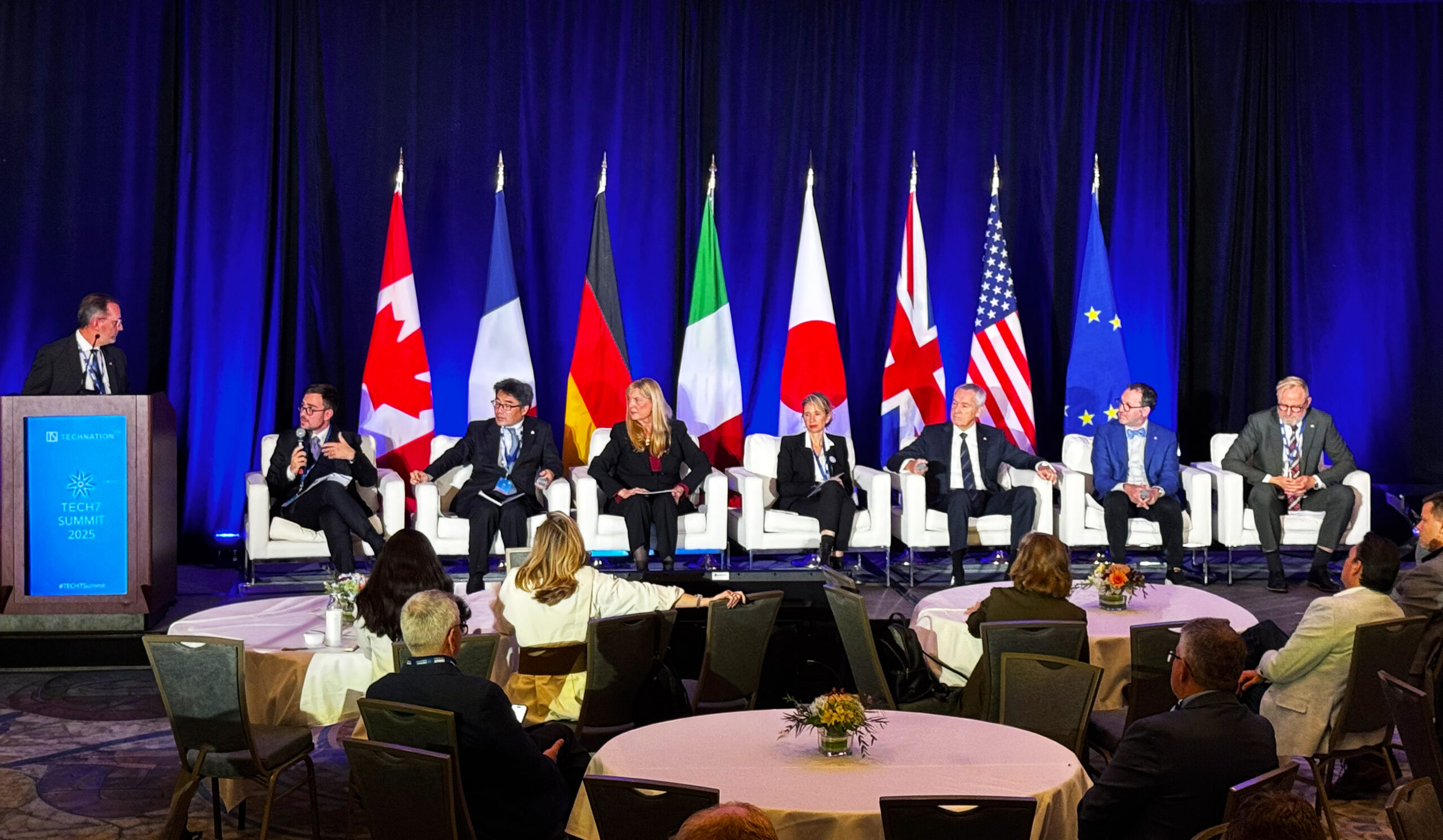
Key takeaways:
- One voice, global impact: TECH7 unites national tech associations to influence G7 policy and advance innovation through shared priorities like trust, data governance, and interoperability.
- Remove fragmentation: Harmonized regulations and interoperable standards are essential to reduce barriers like data localization, divergent export controls, and duplicative compliance, particularly for SMEs.
- Data Free Flow with Trust (DFFT): G7 nations must advance trusted data flows that safeguard privacy and security while enabling cross-border AI innovation and digital trade.
- AI and energy alignment: Balancing AI’s energy demands with climate goals requires innovation in hardware, smarter data centers, and modernized energy grids.
- Sustaining momentum: TECH7 partners emphasized keeping the brand visible year-round, engaging national ecosystems, and measuring progress against the Joint Declaration.
____________________________________________________________________________
End-of-Day Keynote Reflections
AI for Prosperity: Policy Strategies to Accelerate AI Adoption
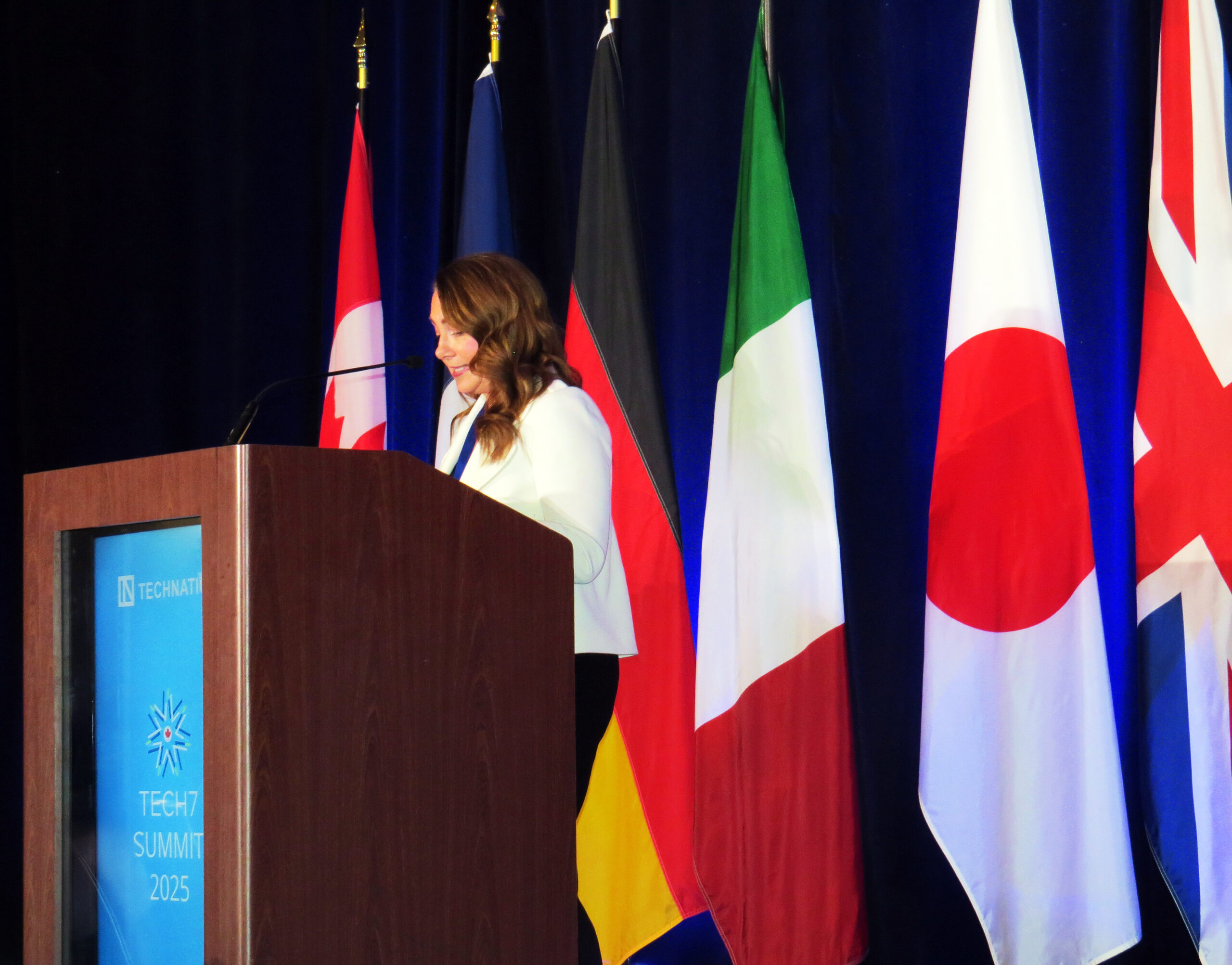 As the TECH7 Summit drew toward its close, Nicole Foster, Director of AWS Global AI/ML & Canada Public Policy (Amazon), took the stage to share how accelerating AI adoption can drive productivity and inclusive growth across G7 economies.
As the TECH7 Summit drew toward its close, Nicole Foster, Director of AWS Global AI/ML & Canada Public Policy (Amazon), took the stage to share how accelerating AI adoption can drive productivity and inclusive growth across G7 economies.
“Winning the AI race isn’t about who builds it first, it’s about who uses it best,” said Nicole Foster, emphasizing that the true measure of success lies in how effectively nations diffuse and apply AI across all sectors of their economies. “The future is already here, it’s just not evenly distributed yet.”
Key takeaways:
- Broad diffusion of AI, especially among SMEs, is key to shared prosperity.
- Cloud technologies democratize AI access, enabling adoption across sectors.
- Five priorities for accelerating AI adoption: AI skills, SME support, public sector leadership, R&D incentives, and trusted data frameworks.
- Global alignment on standards and data governance will help ensure AI’s benefits reach all citizens.
____________________________________________________________________________
Resilience Through Innovation: Ukraine’s Digital Transformation and Global Partnership
As the Summit neared its conclusion, the final keynote brought a powerful and emotional perspective on Ukraine’s digital transformation.
Ambassador Andrii Plakhotniuk, Ambassador of Ukraine to Canada, shared how digital transformation has become a cornerstone of Ukraine’s survival and strength amid war. He highlighted how innovation, trust and human capital are driving the nation’s digital resilience.
“For Ukraine, innovation and digital transformation have become synonyms for survival,” said Ambassador Andrii Plakhotniuk, reflecting on how the Diia app connected millions of citizens to essential services during crisis. “This is Ukraine’s digital resilience and we invite global partners to co-create a secure and innovative future.”
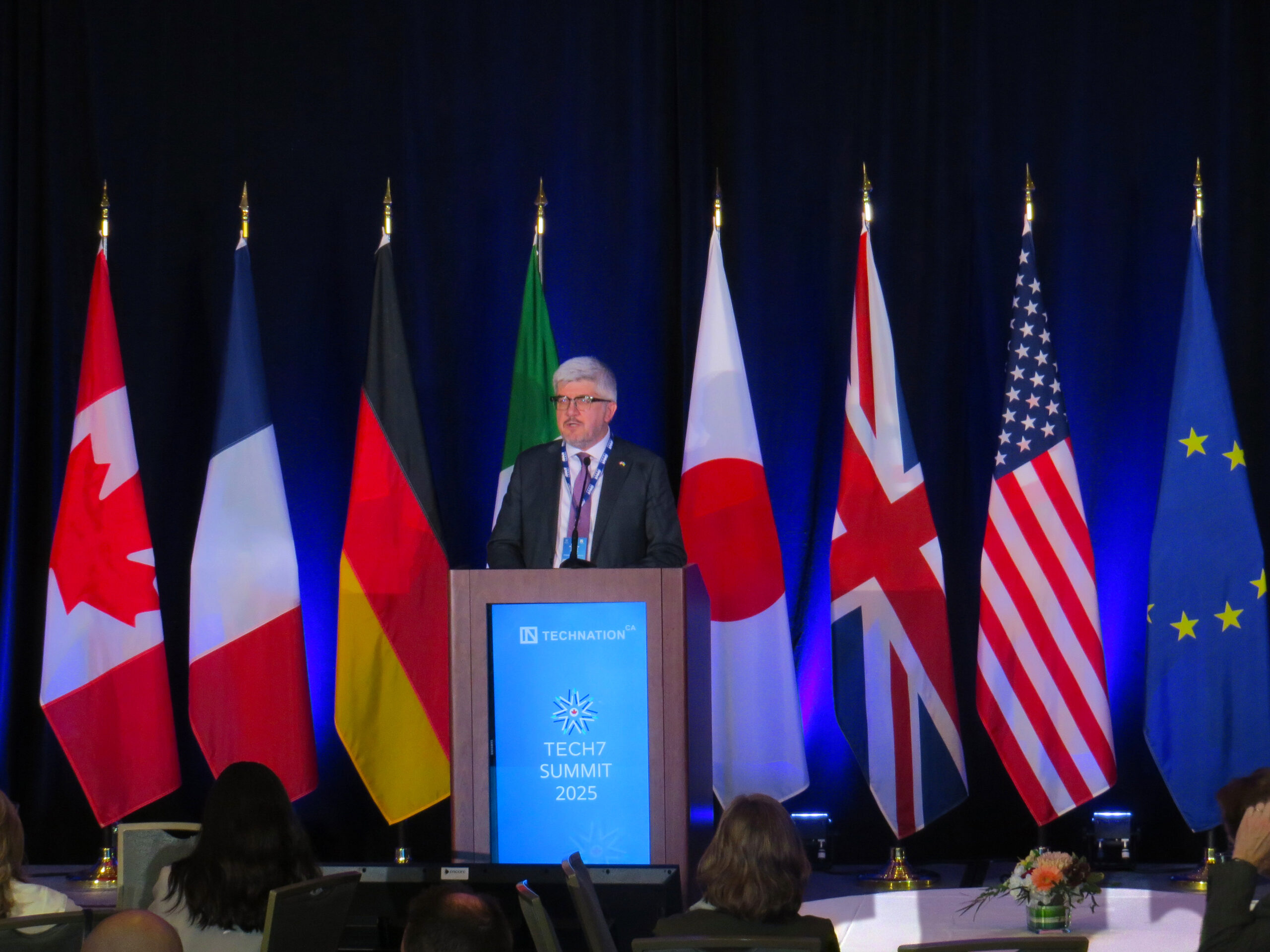
Key takeaways:
- Technology and innovation have become instruments of defense and hope in Ukraine.
- The Diia app, offering over 130 government services, embodies a new model of citizen trust and digital governance.
- Massive digital upskilling has turned Ukraine into the “digital tiger of Europe.”
- AI integration is advancing national security, governance, and public service delivery.
- Ukraine invites global partners to co-create a digitally resilient and secure future.
____________________________________________________________________________
Closing Address and TECH7 Handover
As the Summit concluded, Kevin d’Entremont, TECHNATION’s President & CEO, returned to the stage to offer closing reflections and officially hand over the TECH7 Presidency to France for 2026. He reflected on the day’s themes of ambition, partnership, and resilience, and expressed gratitude to sponsors, partners, and the TECHNATION team, presenting France with a symbolic Inukshuk, a gesture of guidance and collaboration for the journey ahead.

“The path ahead may not always be clear, but through collaboration, we’ll continue to find our way forward.” – Kevin d’Entremont
Véronique Torner, President of Numeum, accepted the handover with appreciation, reaffirming France’s commitment to advancing TECH7’s mission of global digital cooperation:
“The challenges we face are global and the solutions must be global, too. Let’s continue building a digital future without borders, rooted in openness, trust and collaboration.”
Thank you to all our partners, speakers, and attendees for making the 2025 TECH7 Summit a success and for advancing a shared vision of a trusted, inclusive, and innovative digital future.
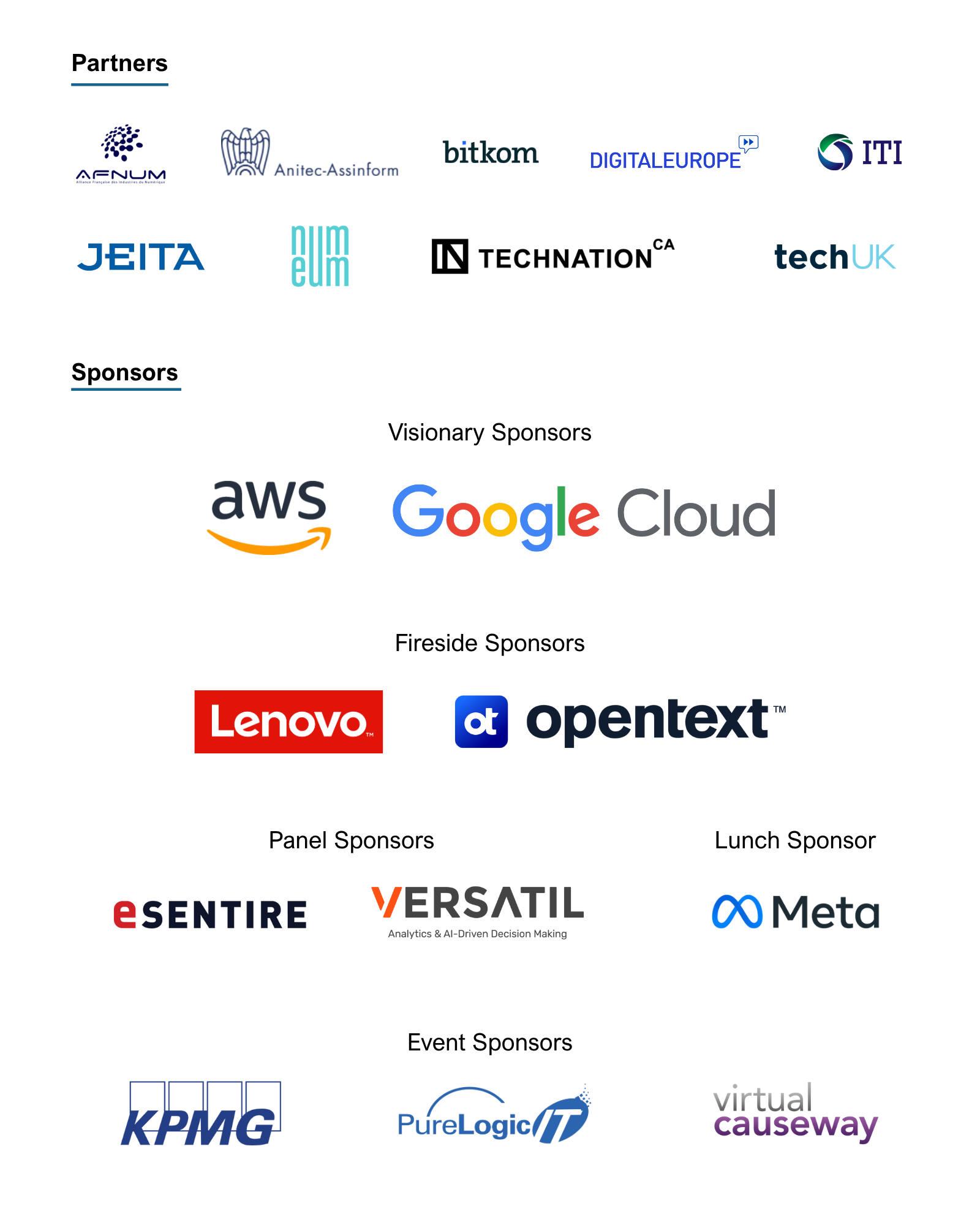



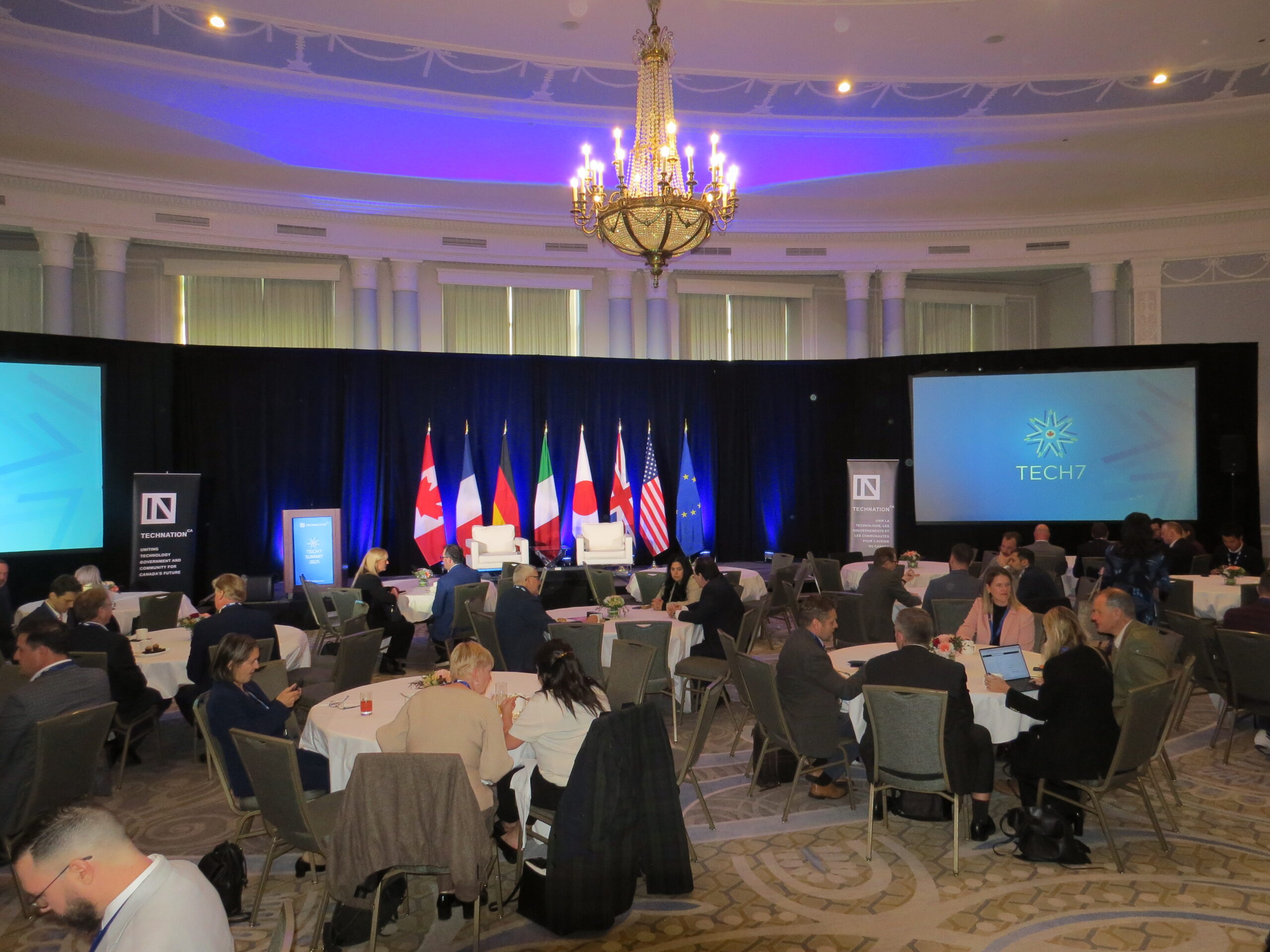


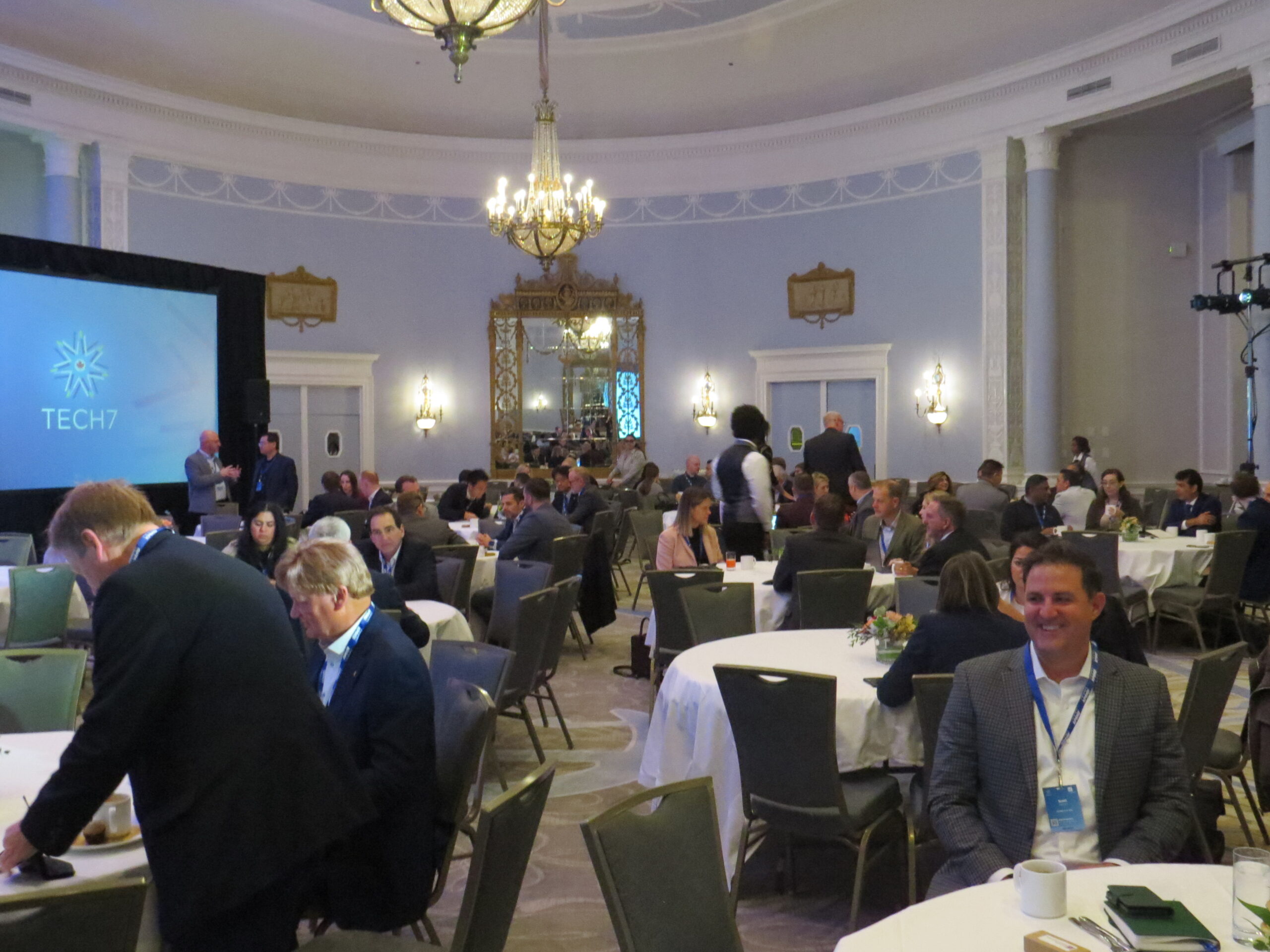













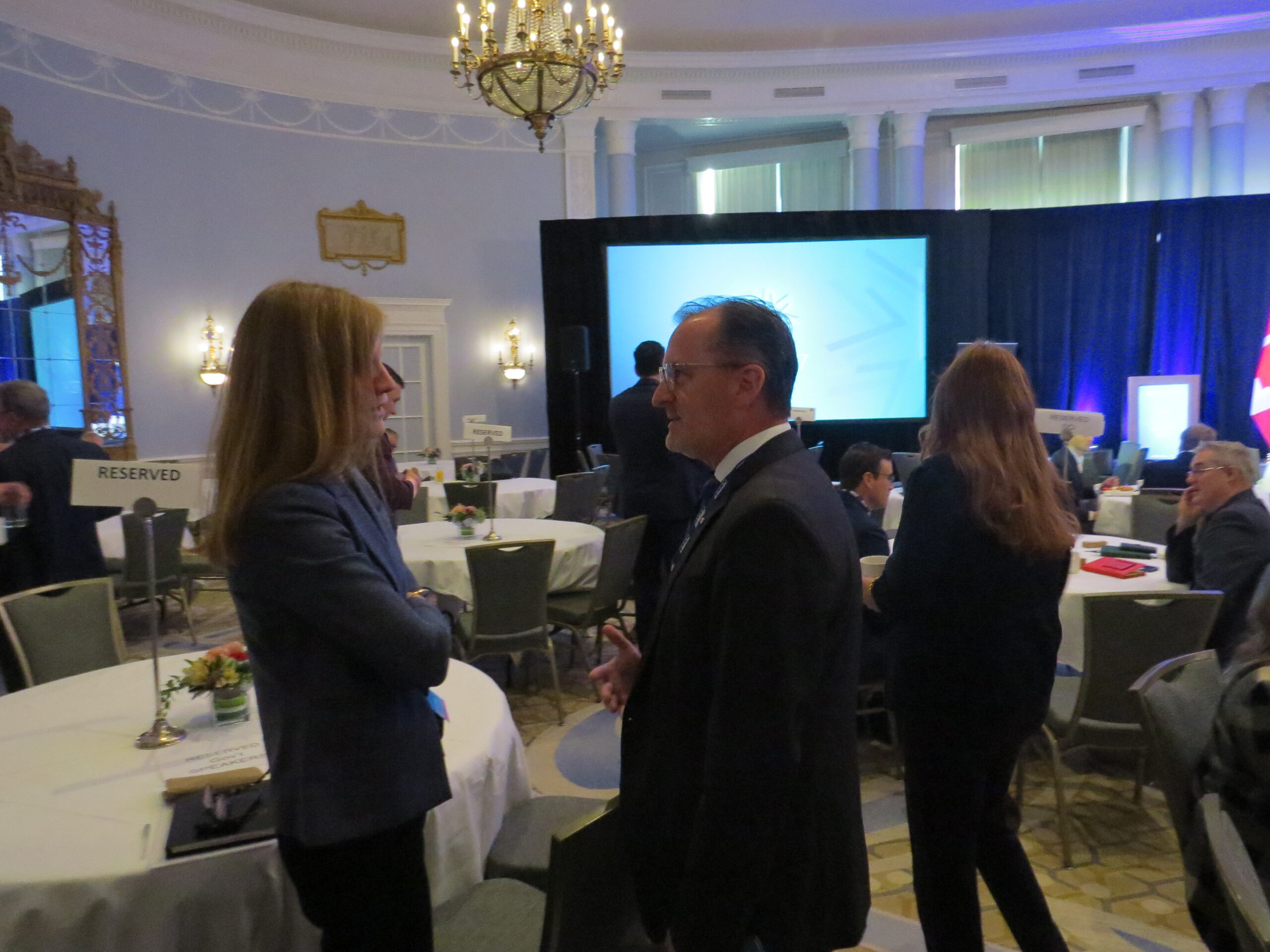






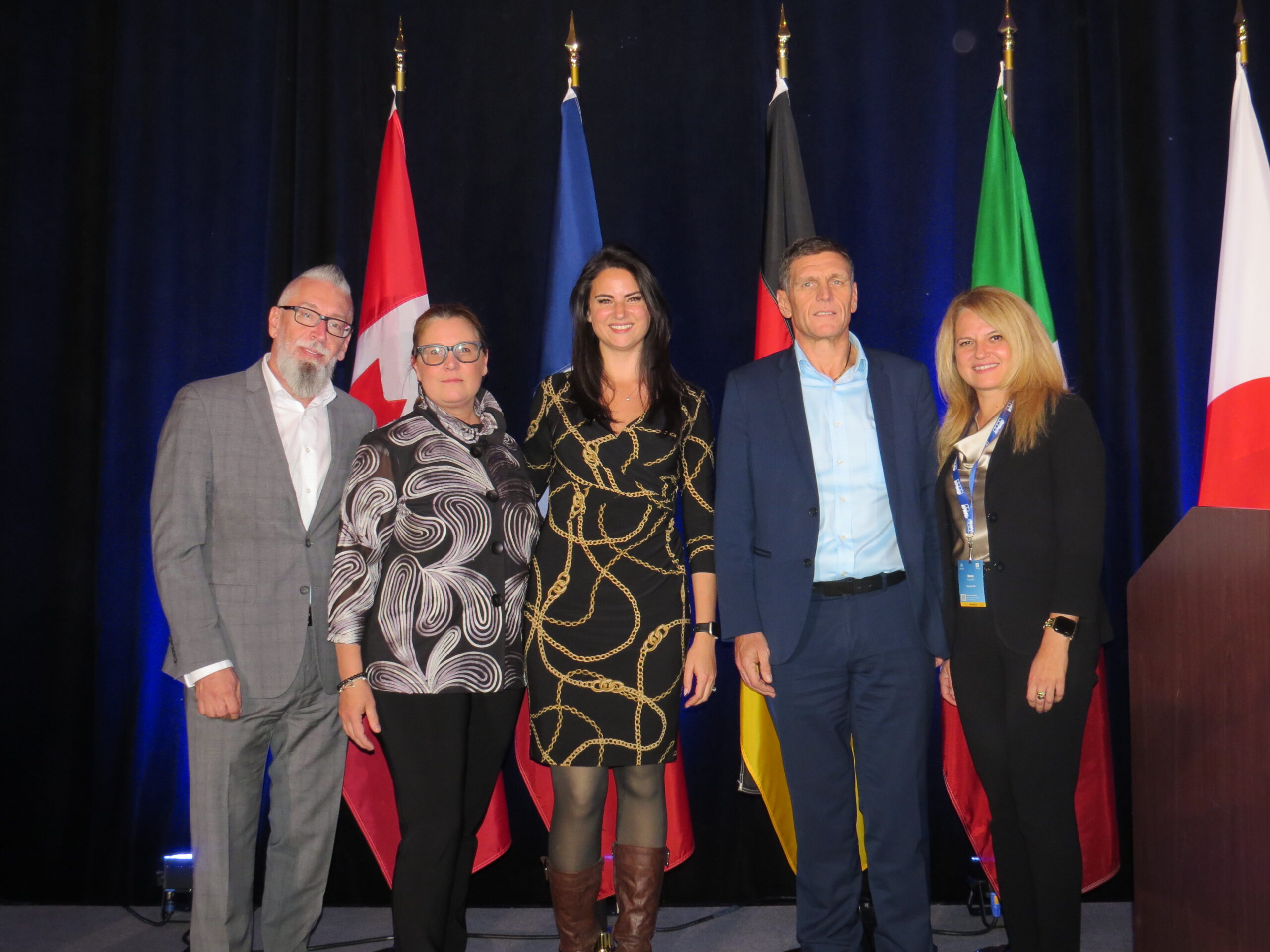

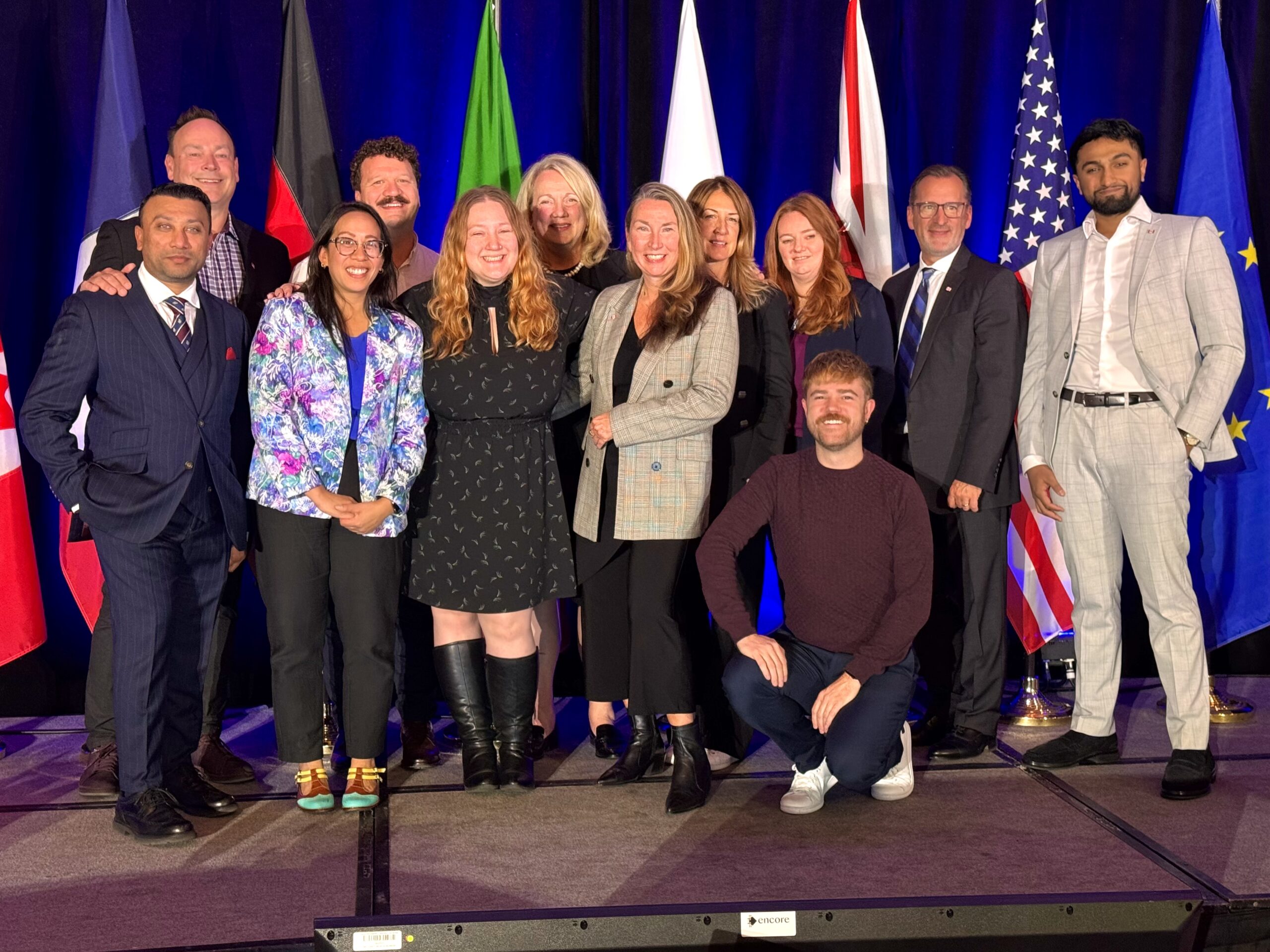
 The Honourable
The Honourable  Responsible global AI adoption was the focus of the day’s first fireside chat featuring
Responsible global AI adoption was the focus of the day’s first fireside chat featuring 
 The day’s third fireside chat brought together
The day’s third fireside chat brought together  The discussion, moderated by
The discussion, moderated by 

 As the TECH7 Summit drew toward its close,
As the TECH7 Summit drew toward its close, 

